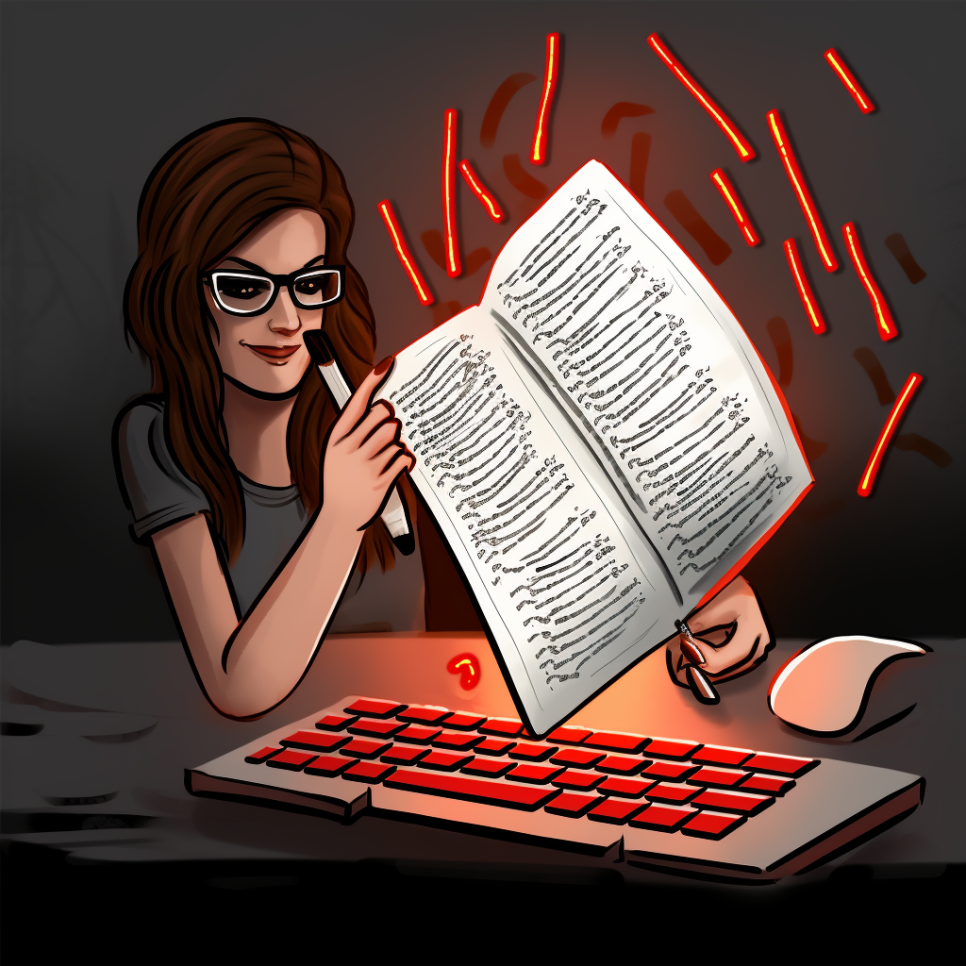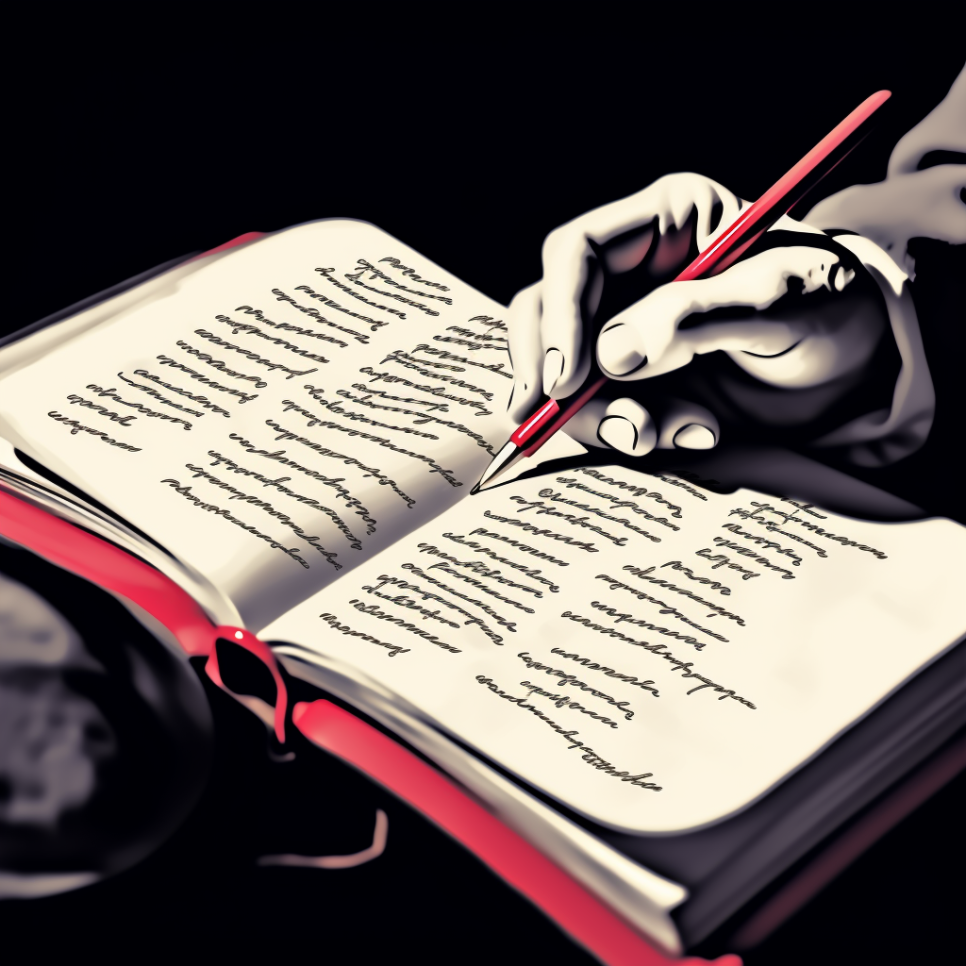Originally written on April 1, 2019, this article has been updated to provide a more comprehensive guide on self-publishing vs traditional publishing.
Welcome to the intriguing journey of becoming an author, a road I’ve traveled twice as a self-published author and twice with Penguin Portfolio, one of the most esteemed traditional publishing houses globally. One of my self-published books even made it to the Wall Street Journal Best-seller list! Whether you’re contemplating self-publishing or considering the traditional route, it’s crucial to understand that each method has its pros and cons.
Regardless of the path you choose, there are some indispensable ingredients for writing a successful book. This post will delve into the realities of both self-publishing and traditional publishing, providing you with a comprehensive view of the author’s journey. The goal? To equip you with the knowledge and insight to make the most informed decision for your unique author journey. So, are you ready to turn the page and begin this exciting chapter?
1. Self-Publishing vs Traditional Publishing

In the world of literature, aspiring authors are often met with a critical decision: choosing between self-publishing and partnering with a traditional publishing house. Both pathways have their unique characteristics, benefits, and challenges, and understanding these can significantly impact an author’s journey and chances of success.
Self-publishing, frequently associated with independent authors, is a route that allows you to have complete control over the entire process of publishing your book. This includes writing, editing, cover design, marketing, and deciding on the book format. In opting for this route, you retain all rights to your work and any profits it generates. However, this also means you bear the costs and responsibilities associated with producing and marketing the book, including making physical copies available in online bookstores and navigating the publishing industry’s complexities.
On the other hand, the traditional publishing route involves entering into a coveted contract with an established, big-name publishing house within the book publishing industry. Major publishers handle the editing, design, printing, and distribution of your book, and may also assist with marketing. They provide an advance against royalties, a form of upfront financial support, which can be particularly beneficial for first-time authors. However, in a traditional deal, the publishing house retains the book rights, and you earn money through royalty rates, which are a percentage of the book’s sales.
This route can lend more credibility and reach to your work, with your books being distributed in physical bookstores and online, elevating their status to that of high-quality books. However, securing a traditional publishing deal, especially for first-time traditionally published authors, can be a slow process and challenging to break into. It often involves developing a compelling book proposal and finding a literary agent who can effectively pitch your book to publishers.
Regardless of the path you choose, whether traditional or self-publishing, there are critical ingredients to becoming a successful author. These include writing a compelling book that is more than just a mediocre book, maintaining a consistent writing practice, and building a platform.
Both self-publishing and traditional publishing have their pros and cons, and the best choice depends on your specific circumstances, goals, and preferences. Always bear in mind that your book’s success, whether a print book or an electronic version, largely depends on its quality, and neither a traditional publishing house nor a self-publishing platform can guarantee success.
2.The Cost of Self-Publishing a Book

When considering the self-publishing route , it’s essential to understand that it provides indie authors with a significant advantage: complete creative control. This means you have the freedom to shape your work exactly as you envision it, right from the writing process to the book design.
Creative Control
The first aspect where this creative control comes into play is in book editing. As a self-published author, you have the liberty to choose your editor, someone who aligns with your vision and can help refine your manuscript while preserving your unique voice. This is a crucial step in the book production process as a good editor can enhance the readability of your book and help you connect better with your audience.
Next, you have complete control over your book cover design . The cover is the first thing potential readers see, and a well-designed cover can significantly influence their decision to pick up your book. As a self-published author, you can choose to work with a professional book designer or graphic designer who can bring your vision to life. You can collaborate with them, share your ideas, and have a say in every aspect of the book cover design process. This ensures that your book cover design effectively represents your story and appeals to your target audience.
Another area where self-publishing route gives you complete control is the book format. Whether you want to release your book as an e-book, a paperback, or a hardcover, the choice is entirely yours. You can decide based on your audience’s preferences, the nature of your book, and the costs involved.
Breakdown of Self-Publishing Costs
Many potential authors often wonder, “how much does it cost to self-publish a book? It’s important to note that the self-publishing route involves bearing all the costs of book production. This includes not just the costs of book editing and book cover design but also expenses related to formatting, printing, distribution, and marketing. While this may seem daunting, managing your book production process allows you to keep track of where your money is going and ensure it’s being used effectively.
Lastly, one of the most significant benefits of the self-publishing route is that you retain all rights to your book. This means you have the freedom to make any changes to your book, decide where and how it’s sold, and keep all the profits from the sales.
Recognizing the costs, the role of an editor, and effective marketing strategies are vital for aspiring authors, regardless of their publishing choice. Both self-publishing and traditional publishing have unique advantages and drawbacks, and the ideal choice is dependent on individual circumstances and goals.
Self-Publishing Companies to Avoid
As you embark on your self-publishing journey, beware of certain companies. Some self-publishing companies promise guaranteed book sales or offer you a book deal and then ask you to pay them, which are red flags. It’s crucial to have a clear understanding of a company’s charges upfront and be wary of anyone who promises too much without transparent costs. Vanity publishers, who may flatter you and make big promises, often leave authors out of pocket without delivering the promised results. Always do your research, read reviews, and ask for recommendations before choosing a self-publishing company.
3.The Role of an Editor in Book Publishing

Finding a competent editor or book proofreader for your book is an essential step in the self-publishing process.
You can find potential editors and proofreaders by browsing professional directories such as the Editorial Freelance Association (EFA), asking for recommendations from other authors, or hiring freelance editors from platforms like Upwork or Fiverr. While Upwork and Fiverr can be decent options, the EFA is a reputable source for skilled and experienced editors and proofreaders.
Before hiring, it’s advisable to request a sample edit to assess their editing style and compatibility with your work. The cost of hiring an editor or proofreader varies depending on their experience level, the length and complexity of your manuscript, and the type of editing or proofreading required.
Investing in a good editor or proofreader can significantly elevate the quality of your book. Renowned author Ryan Holiday, for example, hires an outside editor for his books despite his extensive writing experience. It’s crucial to choose an editor or proofreader who provides honest, constructive feedback rather than sugarcoating their critique. Remember, the goal of editing and proofreading is to improve your book, and sometimes that involves hearing hard truths.
In my experience, the greatest value of working with a traditional publisher is the opportunity to work with a skilled editor. You are held to a much higher standard than correct spelling and proper grammar if it’s a reputable publisher.
4.Book Marketing Strategies for Self-Published Authors

Embarking on a self-publishing journey is exciting, but it also comes with significant challenges, one of the most prominent being marketing. As a self-published author, you are solely responsible for promoting your book and reaching your target audience. Therefore, it’s crucial to devise effective book marketing strategies that can help your book gain visibility and attract readers.
Writing and Marketing a Non-Fiction Book
Writing a non-fiction book involves more than just presenting facts and information. It requires constructing a compelling narrative that captivates readers and provides them with valuable insights. Once you’ve written a book that doesn’t compromise on quality, the next step is to craft a robust book marketing strategy and execute a successful book launch process.
Remember the words of Ryan Holiday: “Promotion is not how things are made great—only how they’re heard about.” Your marketing efforts should focus on highlighting the unique aspects of your book, its relevance, and the value it provides to potential readers. Moreover, the best book promotion strategy is a well-written book that resonates with readers and compels them to recommend it to others.
Utilizing Author Websites and Book Cover Illustrators
In today’s digital age, having an author website is not just beneficial—it’s essential. Your website serves as the central hub for your online presence, where potential readers can learn more about you and your work, get updates about new releases, and even purchase your books. A well-designed, user-friendly website can significantly boost your visibility and credibility as an author, contributing to your overall book marketing strategy.
Similarly, an eye-catching book cover can make a powerful first impression. I experienced this firsthand when my book cover caught the attention of Glenn Beck while he was browsing Amazon. Remember, people do judge a book by its cover, and an engaging cover can pique a reader’s curiosity and prompt them to learn more about your book. Hiring a professional book cover designer can be a worthwhile investment, enhancing your book’s appeal and setting it apart in in online bookstores.
Creating and Executing a Book Marketing Plan
Creating a comprehensive book marketing plan is a crucial step in your self-publishing journey. And the same is true even if you have a traditional publishing deal. This plan should outline your marketing goals, identify your target audience, and detail the strategies you’ll use to reach your readers. Whether it’s through social media promotion, email marketing, or collaborations with influencers and bloggers, your marketing plan should leverage multiple channels to maximize reach.
Executing your marketing plan effectively is equally important. This involves regularly monitoring your progress, adjusting your strategies as needed, and staying consistent with your efforts. Remember, marketing is a long-term endeavor—it requires patience, persistence, and continuous learning.
Finally, don’t underestimate the power of a successful book launch. A well-planned book launch strategy can generate buzz around your book, attract initial readers, and even boost early sales. Consider various book launch tips, such as hosting a launch event, offering pre-order bonuses, or conducting a blog tour, to make your book’s debut a success. Remember, the journey doesn’t end with publishing your book—it’s just the beginning.
Getting Book Reviews on Amazon
An important strategy for boosting your book sales is getting reviews on Amazon. However, it’s crucial to approach this ethically. While there are companies out there that promise to get you reviews or a guarantee in sales volume, it’s advisable to avoid them as they often employ unscrupulous tactics that can compromise your integrity as an author.
Instead, focus on obtaining genuine reviews from people who have actually read your book. This could be your audience, friends, and family, or anyone you know. Encourage them to leave an honest review on Amazon, as this can significantly enhance your book’s visibility and credibility. Remember, gaming the system is a short-term tactic that can harm your reputation in the long run. Instead, strive for authenticity and genuine engagement with your readers.
5.The Journey to Becoming an Author

The journey of becoming an author is a thrilling yet challenging undertaking. It requires not just talent but also perseverance, discipline, and a deep understanding of your audience and your message. Whether you’re a budding writer dreaming about penning your first book or an experienced author exploring new avenues, this guide will provide you with valuable insights and practical advice to navigate the literary landscape and potentially launch a successful writing career.
Write a Book with Substance
The first and most critical question every aspiring author needs to ask themselves is, “Why Do You Want to Write a Book?” This question probes deeper than the surface, seeking to uncover the core motivation that drives you to embark on the arduous journey of writing a book. Your reasons should stem from a genuine desire to share a story or message rather than ego-driven motives. Remember, writing a book is a laborious process that may not always lead to fame, bestseller lists, or financial success. But if you’re passionate about your message and committed to your craft, the journey itself can be incredibly rewarding and potentially lead to critical acclaim.
JT McCormick, a successful CEO who transitioned from a challenging background, provides an excellent example of a compelling reason to write a book. He wanted to share the valuable lessons he’d learned throughout his life with his children. His story emphasizes that the best reason to write a book is to share something meaningful—something that can touch lives, inspire change, or contribute to a broader conversation.
Consistency in Writing
Consistency is key to becoming a successful author. It’s what separates professionals from amateurs. While the latter write only when they feel inspired, the former adhere to a strict writing schedule, churning out words day after day, regardless of whether inspiration strikes. This consistency can be the difference between a mere hobby and a flourishing writing career that leads to a place on bestseller lists.
I experienced the power of consistency firsthand when I committed to writing 1000 words a day. This practice led to significant progress in my writing journey, enabling me to self-publish two books, write hundreds of articles, and eventually secure a book deal with a traditional publisher. If you’re serious about becoming a bestselling author, make writing a non-negotiable part of your daily routine.
Finding Your Message or Theme
In the process of writing a book, it’s essential to explore a central idea or theme that can sustain several chapters or even several hundred pages. This theme often emerges through the work you do, whether it’s writing articles, recording podcasts, or expressing your creativity through other mediums.
As an author, your message is your unique fingerprint on the literary landscape. It’s what sets you apart from other writers and resonates with your readers, making your work meaningful, relevant, and potentially worthy of literary prizes. So, delve deep, explore your passions and experiences, and find the message that you’re eager to share with the world.
Becoming an author involves more than just penning a book. It requires honing your craft, building a loyal audience, and understanding the market. If you’re wondering, “how do you become an author?”, “how to write more?”, “how to write a book with no experience?”, or “I want to write a book about my life,” the answers lie in mastering these foundational steps.
Before starting to write a book, especially one about your life, it’s crucial to ponder some significant questions as proposed in Ryan Holiday’s book Perennial Seller:
- Who is this book for?
- Who is it not for? Why is it special?
- ** What will it do for the reader? **
- Why should anyone care? What does this book teach?
- What problem does it solve?
These questions will guide you in understanding your target audience, refining your message, and creating a book that not only resonates with readers but also stands the test of time. A well-written book that addresses these questions effectively has the potential to become a bestseller, garner critical acclaim, and establish you as a bestselling author.
The Importance of a Platform in Publishing
Building a strong author platform is an integral part of the publishing process, regardless of whether you choose to self-publish or go with a traditional publisher. Often, new authors face the harsh reality that publishers are more interested in their existing author platform than the quality of their work. This is because an established audience indicates a ready market for your book, reducing the publisher’s risk. The platform becomes a key part of your book proposal.
Outliers like J.K. Rowling, who achieved immense success without a pre-existing author platform, are few and far between. For most authors, having an audience of loyal readers who are interested in their work is crucial. This audience, often referred to as 1000 true fans ,’ forms the core of your reader base and can significantly boost your book’s visibility and sales.
Creating a medium for your message, such as a blog, podcast, or newsletter, can help you build this author platform. However, it’s essential to focus on mastery rather than metrics. Instead of chasing large numbers, concentrate on nurturing genuine connections with your readers and providing valuable content. This approach is much more likely to yield a loyal, engaged audience over time.
In the digital age, social media can seem like an attractive platform for building your author platform. However, it’s crucial to remember that social media platforms are rented spaces. You don’t own your followers, and changes to the platform’s algorithms or policies can quickly diminish your reach.
In contrast, an email list is a much more reliable and valuable asset. It provides a direct line of communication with your audience, allowing you to engage with them on a deeper level. More importantly, you own this list and have full control over it. Despite the rise of various digital communication channels, email remains the number one driver of book sales. Therefore, investing time and effort in building a robust email list can be a game-changer in your author journey.
Success Stories
There are numerous success stories in both the self-publishing and traditional publishing realms. For instance, Amanda Hocking, a paranormal romance author, was initially rejected by traditional publishers. Undeterred, she decided to self-publish and ended up selling over 1.5 million copies of her nine books, subsequently signing a $2 million deal with St. Martin’s Press. On the other hand,
J.K. Rowling, the renowned author of the Harry Potter series, faced several rejections from publishers before Bloomsbury Publishing decided to take a chance on her manuscript. The series went on to sell over 500 million copies worldwide, making Rowling one of the most successful authors of all time.
Another self-publishing success story is Hugh Howey, who first published his book ‘Wool’ online as a short story before expanding it into a series. He retained his digital rights and sold the print rights to Simon & Schuster, a unique arrangement that demonstrated the potential for hybrid publishing models. His success is a testament to the fact that while the average self-published author may not become a millionaire overnight, there is potential for significant success if you write a book that resonates with readers and effectively market it.
In my personal journey, I experienced success in both realms. I began as a self-published author, and the success of my self-published book, combined with the platform I had built, led to a traditional publishing deal. This goes to show that regardless of the path you choose, success is achievable. It all boils down to the quality of your work, your dedication, your understanding of your audience, and a little bit of luck. Whether you choose to self-publish or pursue traditional publishing, remember to stay true to your message, connect with your readers, and continue honing your craft.
